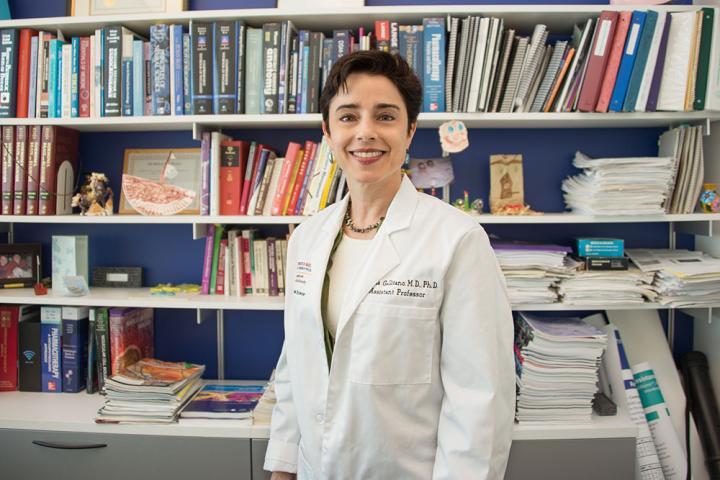An Interview with our April Colloquium Speaker Dr. Amelia Gallitano
AUTHOR:Ashley Bernardo

1. How did you become interested in research and specifically your current research focus?
How the physical substance of the brain produces our thoughts, emotions, and memories, has fascinated me since I was in high school. To date, one of the major unanswered questions in the field of psychiatry is how genes and environment interact to produce mental illness. During my post-doctoral fellowship, I developed the hypothesis that dysfunction in immediate early genes (genes activated transiently and rapidly in response to a wide variety of cellular stimuli) may produce a predisposition to develop symptoms of psychiatric illness in a manner that depends upon the stress history of an individual.
2. What steps did you take to achieve your current position and what were some of the obstacles you faced during your career path?
I started by attending a college where I could work in a research laboratory. This experience solidified my passion for scientific research. But I also wanted to help individuals with mental illness more directly than through the long path of research. To be able to do both, I attended an MD, PhD program, receiving my PhD in neuroscience, and then completed a psychiatry residency. There have been many challenges along the way. One is the enormous time commitment that was required during many phases of the training and career, which can be difficult on the other people in your life. Another major challenge was spending two years on a research project during my post-doc that didn’t work, and then having to start over and develop a new project from scratch.
3. What are some of your responsibilities as an Associate Professor at the University of Arizona?
My time is divided between research, teaching, service, and, until a few months ago, clinical work. I teach first and second year medical students, as well as graduate students and even psychiatry residents. “Service” includes roles on committees. We opened as a new medical school in 2007, with which came all the requisite committees. Since we had a very small full-time faculty, each of us had a lot of committee and administrative work to cover. Some of the service I have been most excited about is starting a summer internship program for high school students to gain research experience,, and developing a Women in Medicine and Science group for the faculty on our campus.
4. What skills do you look for in potential graduate and post doctoral students?
The first thing I look for, that is more important than skills, is a passion for science. Without passion, curiosity, and the love of learning and figuring out how to solve a problem, you won’t have the drive and energy to overcome those inevitable obstacles that you asked about earlier. If you have passion, and intelligence and curiosity, you can learn the skills.
5. What advice might you give to current graduate students interested in pursuing a career in academia?
I don’t want to sound too negative, but it’s a long, hard career. You should only take it on if you love it, and you can’t imagine yourself doing anything else. Otherwise, go into business. In just 2 years you’ll be done with school and making a lot more money than you would for another decade in academia. ;)
I know that sounds cynical, and I’m partly joking, but the funding situation is so tight these days, that you have to be able to tolerate a lot of rejection and persevere through failure, to succeed. That’s my other advice, persevere! The characteristic most highly correlated with success in science is persistence.
The other thing to remember is that there are many ways to use your scientific training and expertise that are not in academia. Working in industry, for example, or starting-up a company, or working for a scientific journal or even a newspaper, or consulting for a business, or many others. Find what you love and pursue it with all your energy, and you will succeed.